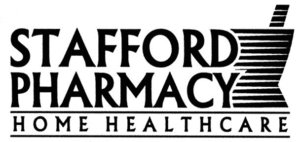Complimentary Alternative Medicine (CAM) Introduction
The use of complimentary and alternative medicine (CAM) has come to be accepted by not only consumers but more importantly by healthcare practitioners. In fact, this is an area that has seen its growth driven by the consumer’s search for safe alternatives to drug therapy in the treatment of minor and major health problems. The acceptance by healthcare practitioners is all the more important because the application of complimentary and alternative medicines requires expertise that most consumers will never acquire. That is not to say that consumers should not gain as much understanding about the multitude of medicinal agents that fall under the complementary/alternative heading but an “understanding of”, is a far cry from “expertise”. The same is true of any health related topic a certain knowledge is a huge asset to both the consumer/patient and the healthcare practitioner. Much better health outcomes can be achieved when a healthcare practitioner open to and with knowledge of, complementary/alternative medicine, works with a patient who has at least a fundamental understanding of the complementary/alternative medicines put to use in their treatment.
Pharmacists have long promoted to their patients that “knowledge is the best medicine” as we continually inform, educate and counsel patients on their health; on disease; on non-prescription medications’ on prescription medications and on the treatment regimens that involve drug therapy. With the addition of complimentary and alternative medicines, the importance of “knowledge” continues to be our focus. Such medicines can offer safe and effective choices when traditional drug therapy is not an option for any number of reasons. Complimentary medicines are meant to safely complement a patient’s current drug therapy and even when drug therapy isn’t required complimentary medicines may “compliment” non-drug measures.
Alternative medicines represent medicinals that are chosen instead of drug therapy when it makes sense. These medicinals can provide treatment options when traditional measures are not warranted, when traditional drug therapy risks outweigh the benefits. The use of alternative medicines have a unique place in the promotion and maintenance of health, something that traditional drug therapy certainly does not focus on.
Finally, although most likely the most significant introduction to alternative medicines for most consumers, is the use of alternative medicines. These are used for the treatment of health related problems that are most appropriately treated with some self-selected therapy such as the treatment of cold and flu symptoms; allergy, pain, headache, stomach upset, diarrhea, constipation, ear ache, eye irritations and the many other problems that commonly present themselves at the pharmacy. There is a growing variety of these medicines available, that can be safe and effective treatment options, when chosen wisely.
You will hear us say this often, “Knowledge is the best medicine”, so make certain you are knowledgeable about the medicines you chose and if it is not possible to know all there is on your own, talk with the pharmacist.
For information about specific supplements, you can search our PharmaChoice Supplements reference site by simply clicking HERE. You will find a search utility that allows you to type in the supplement of interest and an information abstract will be displayed. Instructions on the use of the search feature are displayed on the first page.


